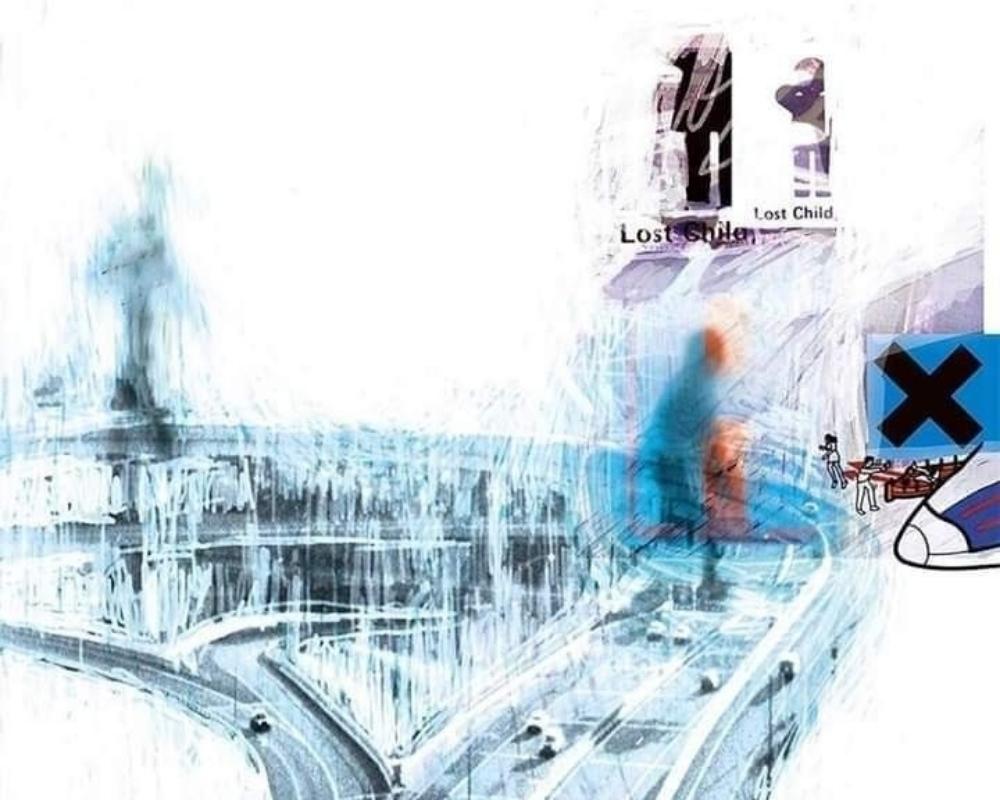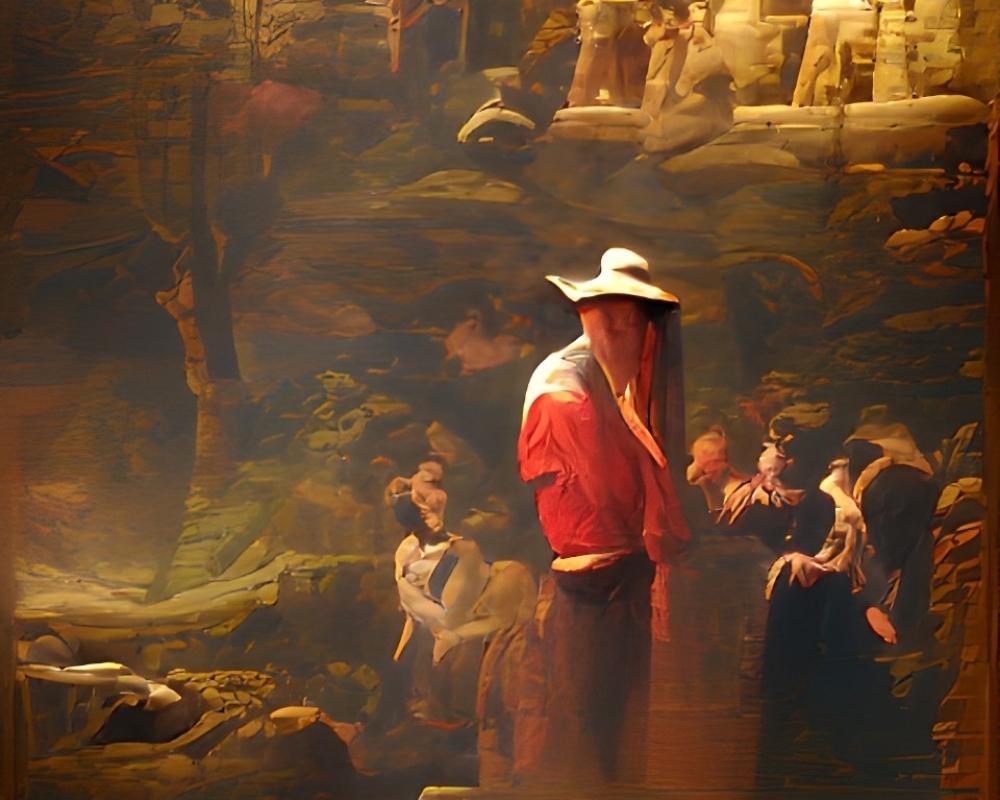The Story Behind Every Song
Curated from: ultimateclassicrock.com
Ideas, facts & insights covering these topics:
13 ideas
·1.2K reads
9
1
Explore the World's Best Ideas
Join today and uncover 100+ curated journeys from 50+ topics. Unlock access to our mobile app with extensive features.
Radiohead’s ‘OK Computer': The Story Behind Every Song
It took Radiohead a little less than four years to make one of rock's most thrilling leaps, evolving from the potent but familiar post-grunge of Pablo Honey into the multihued art-rock of their third LP, OK Computer .
Everything was, to quote a later Radiohead song, "in its right place" by 1997. Working with producer Nigel Godrich, the band expanded in every area: more complex lyrical themes, a wider range of influences (from Miles Davis to the Beach Boys ) and a heftier toolbox of instruments (electronics, cello, glockenspiel, mellotron).
13
236 reads
Airbag
OK Computer 's experimental opener, built around Phil Selway's chopped-up drums, draws on Yorke's uneasy relationship with automobiles. A decade earlier, he was involved in a car accident that left his girlfriend injured, though the singer walked away unharmed (at least physically). The lyrics were inspired by an article ("An Airbag Saved My Life") in a British Automobile Association magazine and themes of reincarnation from The Tibetan Book of the Dead — a heady start to a heady album.
11
141 reads
Paranoid Android
OK Computer 's epic centerpiece is a collage, combining a series of unrelated musical ideas and pulling inspiration from multiple sources. For example, the title is a nod to Marvin the Paranoid Android from Douglas Adams’ The Hitchhiker’s Guide to the Galaxy and also a tongue-in-cheek twist on Yorke's public persona. The title “was chosen as a joke,” he told Jam! “It was like, ‘Oh, I’m so depressed.’ And I just thought, that’s great. That’s how people would like me to be.”
11
124 reads
Subterranean Homesick Alien
For the record's spacey third track, Radiohead tried to emulate the electric keys and warm textures of Miles Davis' 1970 jazz-fusion classic Bitches Brew . Yorke also drew on an old-school essay about being an alien from another planet: "You’ve landed and you’re standing in the middle of Oxford. What do you see? If you’re an alien from another planet, how would you see these people?’” he told Launch in 1999. But the final lyrics tweak that concept, using the perspective of a human bored with life on Earth.
11
97 reads
Exit Music (For a Film)
If it's one of Radiohead's most cinematic songs, there's a logical reason: The band did indeed write "Exit Music" for a film, Baz Luhrmann 's adaptation of William Shakespeare’s Romeo + Juliet . Yorke had a clear vision, having watched a previous movie adaptation growing up. “I saw the [1968 Franco Zeffirelli] version when I was 13, and I cried my eyes out because I couldn’t understand why, the morning after they shagged, they didn’t just run away,” Yorke recalled . “The song is written for two people who should run away before all the bad stuff starts. A personal song.”
11
90 reads
Let Down
It's the emotional anchor of OK Computer : a subtly complex singalong that crescendos into a wall of falsetto. Ironically, it's about emotional detachment, "the emptiest of feelings." Reflecting on the song to Humo magazine in 1997, multi-instrumentalist Jonny Greenwood noted: “It’s the transit-zone feeling. You’re in a space, you are collecting all these impressions, but it all seems so vacant. You don’t have control over the earth anymore. You feel very distant from all these thousands of people that are also walking there.”
11
76 reads
Karma Police
“It was a band catchphrase for a while on tour – whenever someone was behaving in a particular shitty way, we’d say, 'The karma police will catch up with him sooner or later,'” Greenwood told Melody Maker . “You have to rely on something like that, even though we’re probably just kidding ourselves.” The playfulness of that concept turned out to feel more sinister within the song's dramatic balladry, even as the arrangement swells to a gorgeous climax with guitar noise and manipulated vocals.
11
79 reads
Fitter Happier
Yorke delivered the album's dystopian manifesto with "Fitter Happier" ... well, sort of. The ambient interlude features creepy text-to-speech lines ("Regular exercise at the gym, three days a week / Getting on better with your associate employee contemporaries / At ease ") partly ripped from self-help books and fully delivered by Fred, a voice built into Macintosh computers. The track emerged during a difficult time in Yorke's life: "I had writer's block for three months," he told Humo in 1997.
11
62 reads
Electioneering
Perhaps the most divisive song on OK Computer , this snarling rocker is indeed a bit more straightforward, both musically and lyrically, than what surrounds it. The politically minded track, Yorke told Select , was inspired by "watching too many MPs on telly – you just get that feeling of, ‘Whoa, I’ve seen this once too many times.'” "Electioneering" appeared on set lists during Radiohead's 1996 tour, though that version included a final refrain of "Doin' it all" that was dropped for the album recording.
12
58 reads
Climbing Up the Walls
Radiohead had dabbled in orchestration before OK Computer — the gentle strings on "Fake Plastic Trees" help elevate that ballad to classic status. But they leaped in that area with "Climbing Up the Walls," which uses darkness and dissonance to amplify the song's haunted-house atmosphere. “I got very excited at the prospect of doing string parts that didn’t sound like 'Eleanor Rigby,'” Greenwood told The Guardian , “which is what all string parts have sounded like for the past 30 years.”
11
53 reads
No Surprises
The narcotic calm of "No Surprises" can't help but feel a bit eerie amid OK Computer 's paranoia. But it's a rare song here that doesn't mask its prettiness, utilizing a twinkling glockenspiel, Ed O’Brien’s chiming guitar and a rainbow of vocal harmonies. “It was meant to be like a nursery rhyme,” O’Brien told Melody Maker in 1997. “Strangely, it was the very first song we did for the album. Didn’t exactly set the tone, did it? It’s a bit like Louie [sic] Armstrong’s ‘[What a] Wonderful World.'”
11
62 reads
Lucky
OK Computer 's turbulent penultimate tune dates back to The Bends tour of summer 1995 when Brian Eno recruited Radiohead for the War Child charity LP The Help Album . “We took the hard option and recorded a brand-new song,” O’Brien told Melody Maker in 1997, detailing the song's quick construction. “Although, admittedly, that’s only because we’re so bad at covers. Always have been. Even when we were a school band, we couldn’t do them.” The resulting track, with its furious guitars and intriguing lyrics about an air-crash survivor, was simply too good to leave off the next Radiohead record.
11
64 reads
The Tourist
Radiohead slowed down things for OK Computer 's atmospheric closer, which musically contrasts with the mad rush described in the lyrics. "Came from being in a beautiful square in France on a sunny day and watching all these American tourists being wheeled around, frantically trying to see everything in ten minutes. You know: We've got to be in Paris tomorrow morning!". The arrangement feels fittingly breathable and open — Greenwood, the track's chief architect, told Humo , "It’s a song where there doesn’t have to happen anything every three seconds. It is become a song with space.”
11
58 reads
IDEAS CURATED BY
I owe my originality to a technical clusterfuck of emotions driven by angst and my dad's radio.
CURATOR'S NOTE
When OK Computer was released in the spring of 1997, it was instantly greeted with ravenous acclaim. According to the music press, Radiohead’s third album was pushing the boundaries of rock, it was about modern life; it was Important. And so, the band’s fans poured over every lyric and every detail in the CD artwork to divine what sort of serious concept album this was, misunderstanding that sometimes Radiohead was just goofing around.
“
Ahana Chakraborty's ideas are part of this journey:
Learn more about music with this collection
How to find inspiration in everyday life
How to stay motivated
How to cultivate a positive mindset
Related collections
Similar ideas
Read & Learn
20x Faster
without
deepstash
with
deepstash
with
deepstash
Personalized microlearning
—
100+ Learning Journeys
—
Access to 200,000+ ideas
—
Access to the mobile app
—
Unlimited idea saving
—
—
Unlimited history
—
—
Unlimited listening to ideas
—
—
Downloading & offline access
—
—
Supercharge your mind with one idea per day
Enter your email and spend 1 minute every day to learn something new.
I agree to receive email updates













